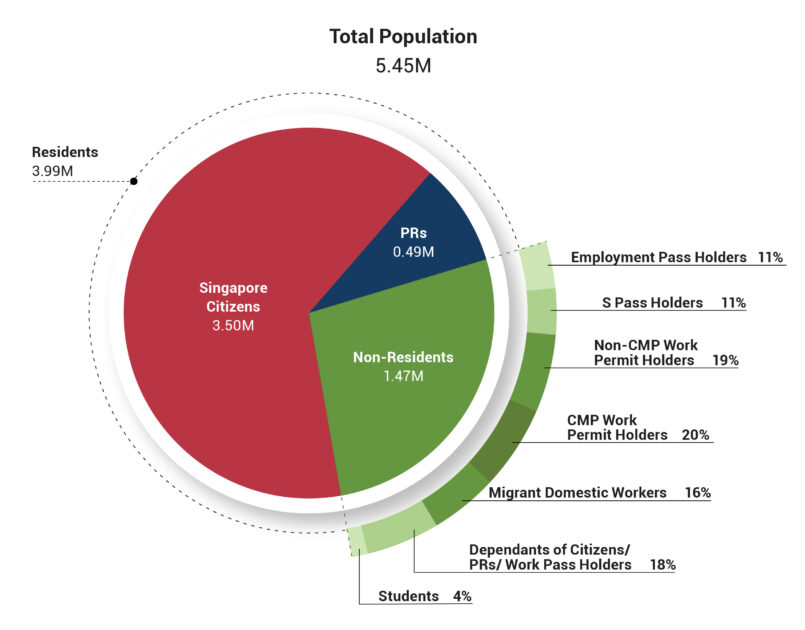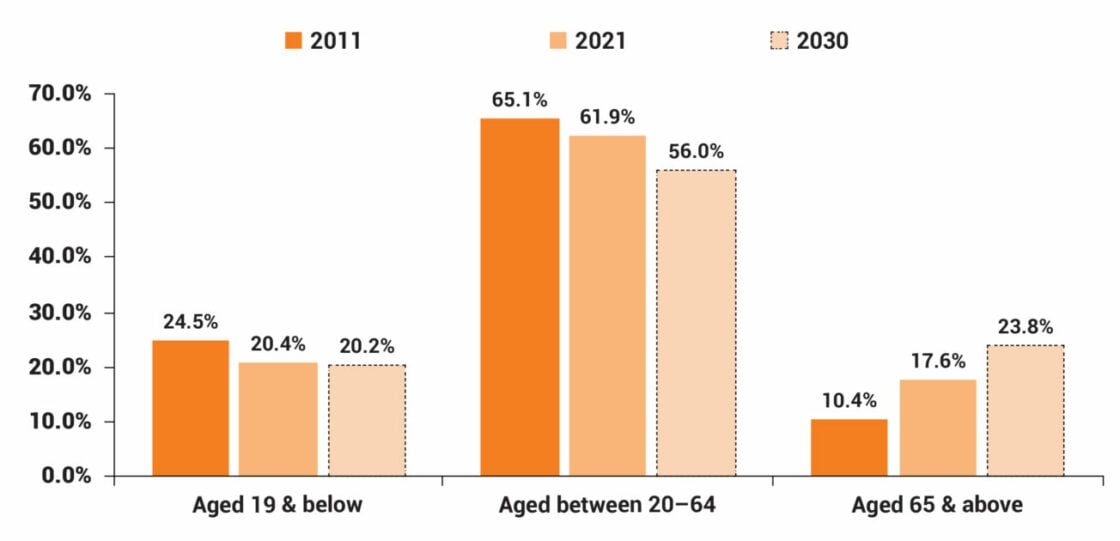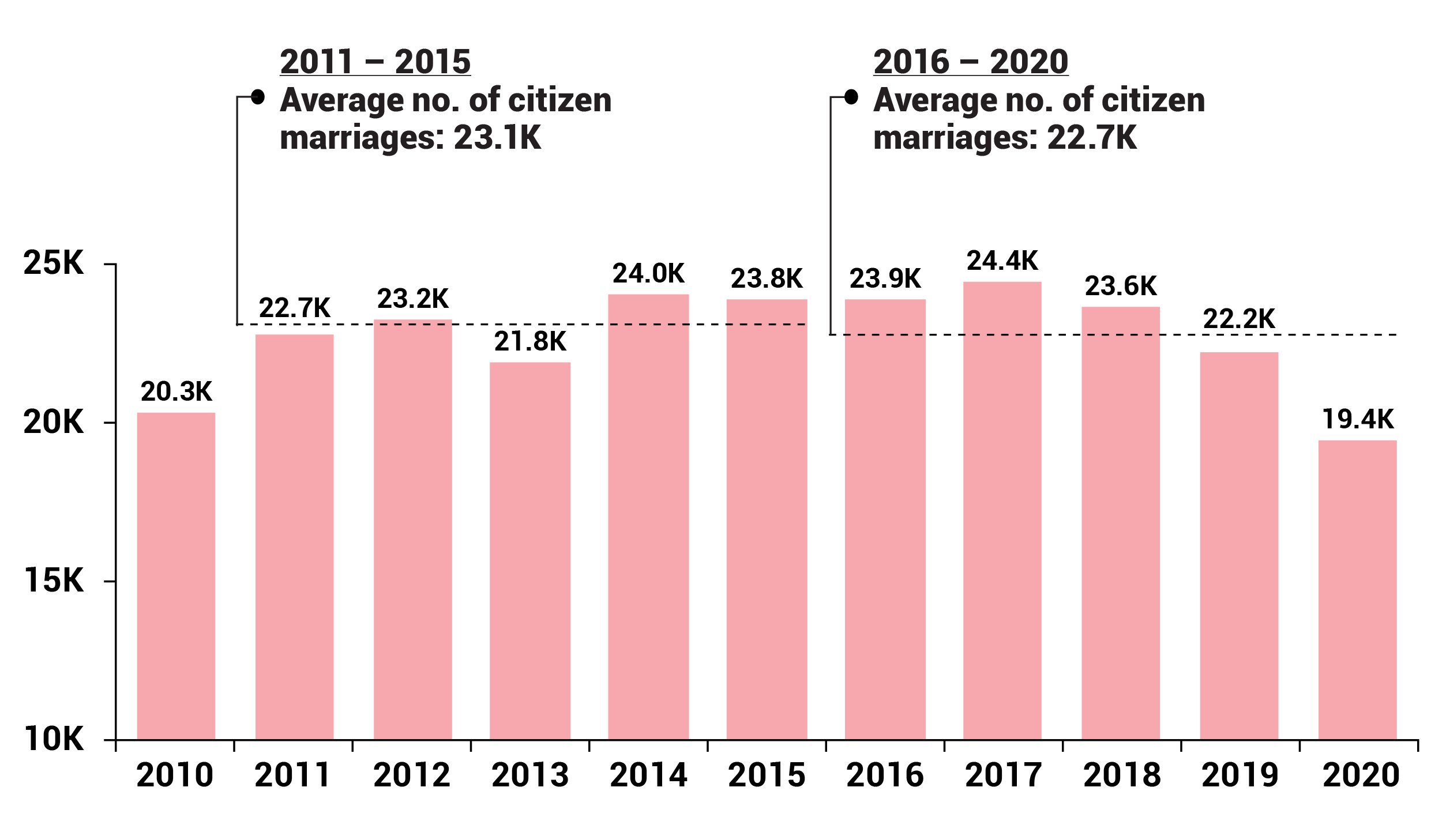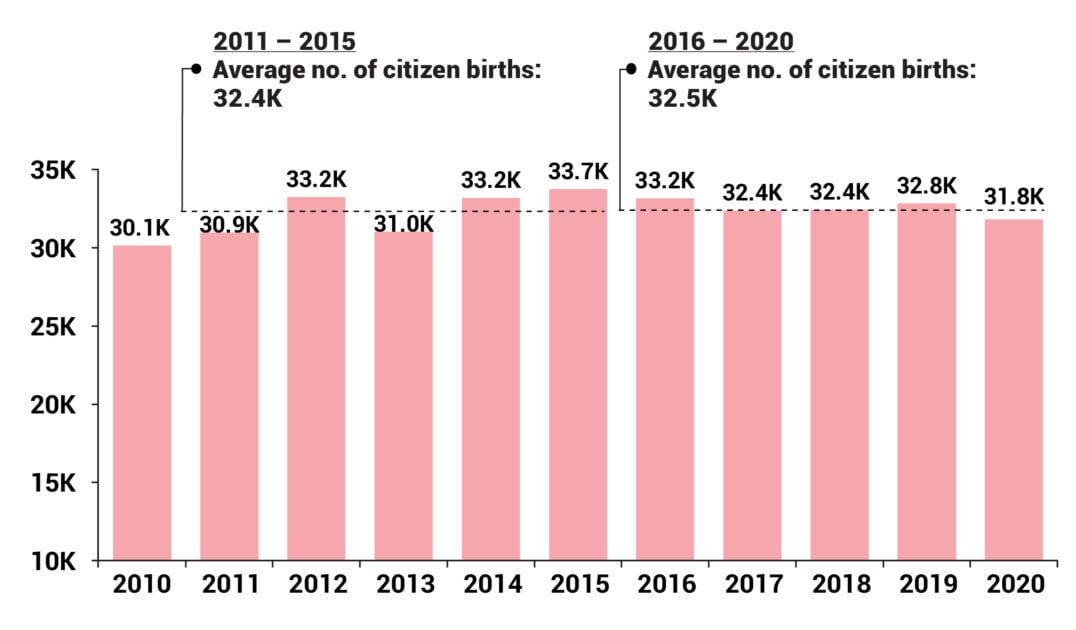During August 2022’s National Day Rally speech, Prime Minister Lee Hsien Loong said that Singaporeans sometimes worry that we will run out of space in the future – that housing will not be available or affordable.
His response? “No need to worry.”
This is because the government has done its studies and planning, and will have enough space for future generations.
His reasoning is that our problem isn’t about finding space to build enough flats or keeping the flats affordable for Singaporeans.
“Our problem is having enough babies to grow up and live in them!”
What Lee is doing is painting a future where we could have all the housing we need, but no future generations around to want or live in them.
As current Singapore residents age, retire and leave behind their flats when they pass, there needs to be a replacement population willing to take them over or create sufficient demand to want a home.
In short, he wishes more Singapore residents could make more babies, while the country continues to attract more foreign talent to shore up our population, workforce, occupancies and economies.
A shrinking population faced with changing demographics
Worryingly, Singapore’s total population shrunk from 5.7 million in June 2019 to 5.45 million in June 2021. While Singapore citizens form 3.5m (64%) of the total, it shrunk by 0.7% between June 2020 and 2021.
Similarly, Permanent Residents (PRs) form 0.49m (9%) of our population but have shrunk 6.2% over the same period. A bulk of this decrease was due to more citizens and PRs remaining overseas due to COVID-19 travel restrictions. Until we see 2022’s census, we can’t tell if most of them returned.
Even non-residents, which form 1.47m of our population (27%), decreased 10.7% due to travel restrictions, foreign employment policies and uncertain economic conditions. Will they come back (or be able to come back) after border reopenings and looser restrictions?

Image source: Department of Statistics, Ministry of Manpower
If we look at the Singapore citizen population trends by age group, based on prevailing demographic assumptions, all major age groups are projected to decline by 2030 except those aged 65 and above.

This means that there’s the assumption that if this trend continues, we could end up looking like Japan. The country has seen its population decline from 127 million in 2014 to 125 million in 2020. At its current rate, this could shrink to 107m by 2040 and 97m in 2050 (with 33% of its population being 65 years old and older).
Based on our Department of Statistics projections and trajectory, depending on whether those same assumptions change, Singapore’s 65 and above age group could even possibly hit 33% of the population even earlier than Japan.
On the other extreme, citizen marriages are also declining, with 12.3% fewer marriages in 2020 (19,430) compared to 2019 (22,165).

Then, of course, we’ve got fewer citizen births in 2020 (31,816) compared to 2019 (32,844).
While the five-year average has stayed around 32,500 per year, the Total Fertility Rate, which is the average number of children that would be born to a woman, is at 1.14 (instead of the replacement rate of 2.1).
One reason for this is partly due to women marrying much later before having children. The median age of first-time mothers increased from 28.5 years in 2000 to 30.6 years in 2019.
It would be interesting to correlate this increase with the number and frequency of housing project delays between 2000 and 2019 just to see if there’s a pattern.

Anyway, during his Rally speech, Lee hinted that getting Singapore residents to have more babies is going to be a challenging one.
In conclusion, he shared that he will deliberate with his team about it and revisit this topic in future rallies.
–
–
How can Singapore have more babies? Let us know in the comments section below.
If you found this article helpful, 99.co recommends Housing an ageing population: it’s more than just building a roof over their heads and 600 households over 4 blocks in Ang Mo Kio picked for SERS.
The post PM Lee says don’t worry about home prices or availability, we just need more babies appeared first on .











